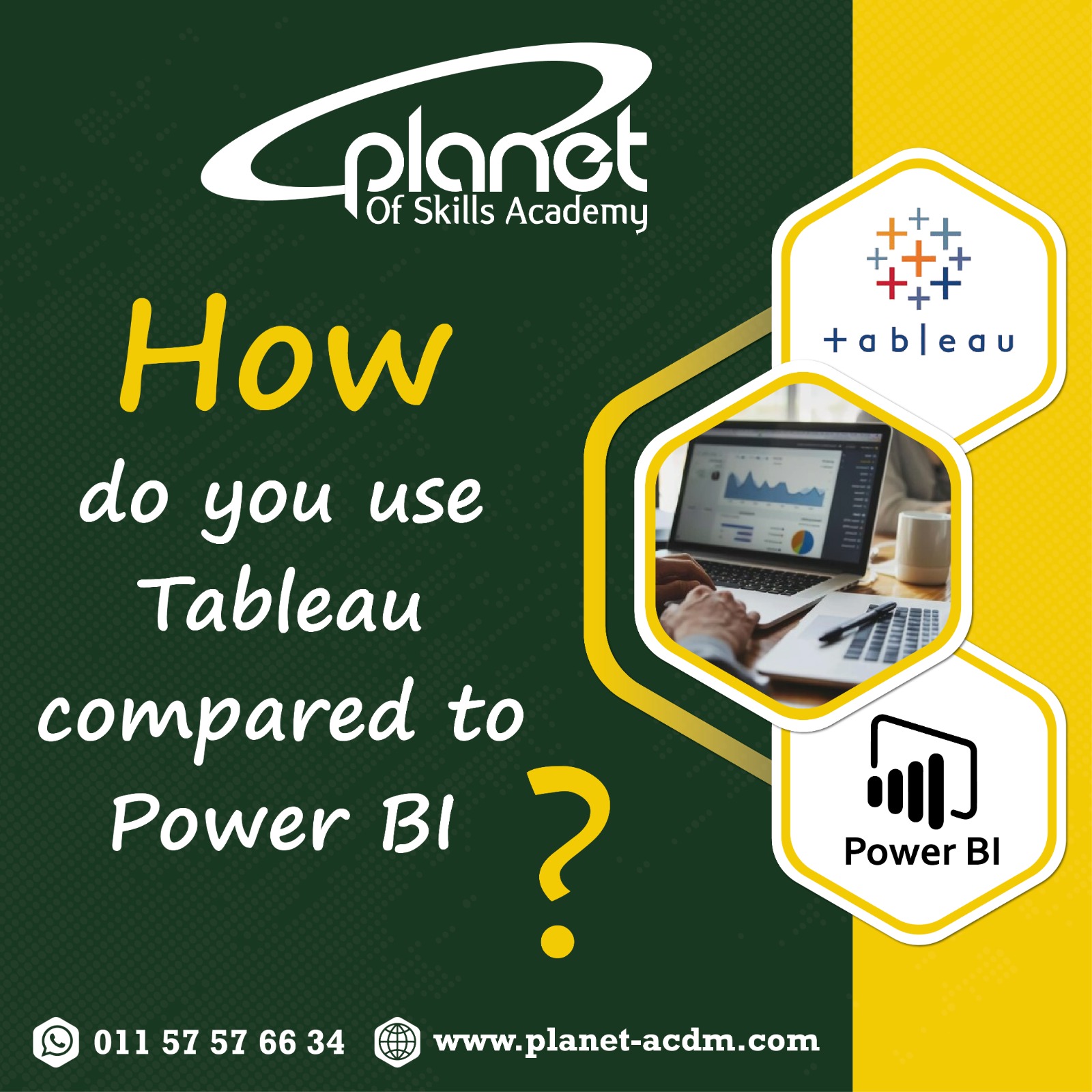When it comes to data analysis and creating interactive reports, two of the strongest tools in the field often come up: Power BI by Microsoft and Tableau by Salesforce.
Both offer powerful data visualization capabilities, but each has its own strengths and is better suited for different types of projects and user needs.
| Feature | Power BI | Tableau |
|---|---|---|
| Developer | Microsoft | Salesforce |
| Interface | Familiar for Excel users | More flexible for design |
| Ease of use | Suitable for beginners | Requires higher technical expertise |
| Visualization power | Very good | Excellent, outstanding |
| Predictive modeling support | Relatively limited | Strong, with Python & R support |
| Pricing | More affordable | Relatively expensive |
| Integration with other tools | Excellent, especially with Office 365 | Excellent across multiple tools |
If you work in a Microsoft ecosystem (Excel, Azure).
If you’re a beginner looking for a simple, user-friendly interface.
For projects involving financial data or KPI reporting.
When you need lower costs with solid performance.
If your project requires complex interactive visualizations.
When you need to integrate advanced tools like Python and R.
If your company relies on Salesforce or advanced analytics tools.
When you want more control over graphics and visual design.
There’s no absolute “best” tool—only the tool that best fits your current needs.
Choose Power BI if you need speed, seamless Excel integration, and ease of use.
Choose Tableau if you’re an experienced report designer who values visual depth and customization flexibility.
Whether you go with Power BI or Tableau, the key is understanding your data, your analysis goals, and your team’s requirements. Both are globally recognized, powerful tools and the real edge lies in how smartly you use them.
PSA (Planet of Skills Academy) is a specialized center that offers training courses in Excel, Advanced Excel, and Power BI programs.
We take pride in providing high-quality and exceptional education in these fields, aiming to empower individuals to acquire the skills and knowledge necessary for success in the field of data and its analysis.
